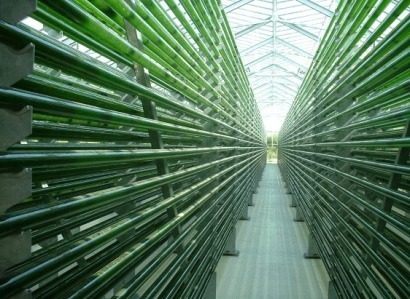
Last year, Gerald Schotman, Shell’s Chief Technology Officer, revealed that 2011 would be “the year of choices” for Shell in relation to its investments in advanced biofuel research, and it certainly appears that the multinational is keeping its word.
At the end of January, , the Hawaii-based and -founded renewable biofuels company, HRBP, acquired Shell’s shareholding in Cellana, a joint venture between Shell and HRBP, making it the sole owner of Cellana, including its six-acre demonstration facility in Kona (Hawaii).
In 2007, HRBP and Royal Dutch Shell PLC, the international energy company, formed Cellana as a separate joint venture to build and operate a demonstration facility to grow marine algae and produce vegetable oil for conversion into biofuel. To date, it is one of the most advanced operational demonstration facilities among algae-to-biofuel organisations and companies in the United States.
‘‘The acquisition of Cellana represents a significant opportunity for HRBP and its corporate and project stakeholders, including the University of Hawaii, Hawaiian Electric Company, Maui Electric Company, the National Alliance for Advanced Biofuels and Bioproducts consortium, the U.S. Department of Energy and others,’’ said Ed Shonsey, HRBP's CEO.
‘‘We will continue to operate Cellana’s Kona demonstration facility and to continuously improve the economics for growing marine algae using HRBP’s patented process. Based on HRBP’s and Cellana’s results to date, we believe this technology holds great potential for the economical production of algae and algae-derived products for applications within the aquaculture and animal feed markets, as well as for the production of algal oil for conversion into biofuels.”
To support the transition Shell has agreed to provide short-term funding to advance and focus the algae technology development program. HRBP will further develop the technology at the Kona demonstration facility with the objective of first commercial deployment at the Ma’alaea site the company has selected on Maui (Hawaii).
HRBP and Cellana will now continue to focus on using the most productive plants on earth – marine algae – to produce feedstocks for biofuel, animal feed, and other valuable applications while simultaneously reducing industrial emissions of carbon dioxide.
Shell’s work into biofuels development continues
Meanwhile, Shell will maintain its 50% stake in Cosan in Brazil, which is involved in the production of ethanol, sugar and power, and the supply, distribution and retail of transportation fuels.
Shell is also working with Iogen Energy, a Canadian company, to develop the processing technology that enables ethanol to be made from straw using enzymes. Iogen opened a demonstration plant in Ottawa (Canada) in 2004, and in 2009 a Shell service station in Ottawa sold petrol containing 10% cellulosic ethanol from the demonstration plant for one month. Shell also has joint technology programmes with Codexis (to develop more powerful enzymes for faster conversion of biomass to ethanol and other fuels) and Virent Energy Systems (to convert plant sugars directly into a range of high performance liquid transport fuels).
Finally, the company has a wide range of biofuels R&D agreements signed with the Massachusetts Institute of Technology, the University of Campinas (Unicamp)in Sao Paulo (Brazil), and the Centre of Excellence for Biocatalysis, Biotransformations and Biocatalytic Manufacture (CoEBio3) based at Manchester University (England); among others.
For additional information:


